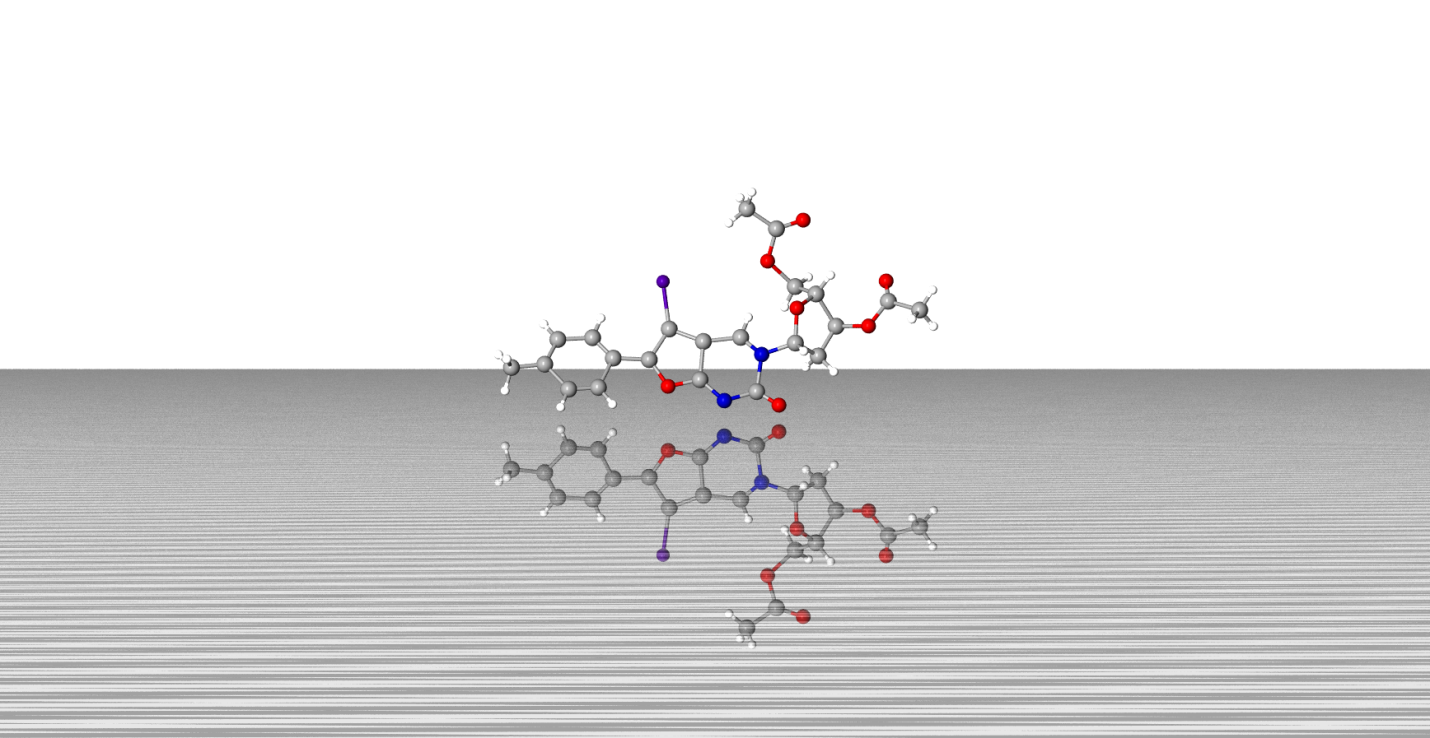
The group is pursuing at present the synthesis of analogs of natural products, particularly modified nucleosides and nucleotides, including coordination complexes of thereof. The metals that may offer different coordination numbers, geometry, and redox potentials, makes such combination with nucleic acid components a powerful tool for the construction of modified biomolecules. Also, novel methodologies for the synthesis of pharmaceutically active classes of heterocycles are being pursued. It is expected that such modified molecules may exhibit interesting biological properties, thus the compounds are tested at the collaborating group Screening laboratory The ultimate goal of these studies is to synthesize materials that exhibit antiviral, anticancer, antisense properties, serve as bio-probes, and to develop new synthetic methodologies.
Renata Kaczmarek, Samuel Ward, Dipra Debnath, Taisiya Jacobs, Alexander D. Stark, Dariusz Korczyński, Anil Kumar, Michael D. Sevilla, Sergey A. Denisov, Viacheslav, Shcherbakov, Pascal Pernot, Mehran Mostafavi, Roman Dembinski, and Amitava Adhikary, One Way Traffic: Base-to-backbone Hole Transfer in Nucleoside Phosphorodithioates. submitted 2020,
Renata Kaczmarek, Dariusz Korczyński, James R. Green, and Roman Dembinski, Extension of the 5-alkynyluridine side chain via C–C-bond formation in modified organometallic nucleosides using the Nicholas reaction. Beilstein J. Org. Chem. 2020, 16, 1–8.
Renata Kaczmarek, Dariusz Korczyński, Karolina Królewska-Golińska, Kraig A. Wheeler, Ferman A. Chavez, and Roman Dembinski, Organometallic Nucleosides: Synthesis and Biological Evaluation of Substituted Dicobalt Hexacarbonyl 2′-Deoxy-5-oxopropynyluridines. ChemistryOpen 2018, 7, 237–247. [CoverFeature]